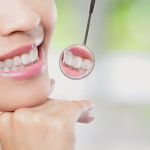How Processed Foods Contribute to Oral Problems
- Impact of Processed Foods on Oral Health
- Hidden Sugars in Processed Foods
- How Processed Foods Lead to Dental Decay
- Oral Hygiene Tips to Combat the Effects of Processed Foods
Processed foods have become an integral part of many people's daily diets. While they are convenient and often tasty, the long-term impact of consuming these foods on oral health cannot be ignored. From sugary snacks to refined carbohydrates, processed foods contribute to a wide range of dental issues, including tooth decay, gum disease, and bad breath. But how exactly do processed foods affect your oral health, and what can you do about it?
For example, a seemingly innocent breakfast of a sugary cereal and a glass of juice may introduce a large dose of sugar into your system. This sugar feeds the bacteria in your mouth, which in turn produces acid that erodes the enamel of your teeth. Over time, this erosion leads to increased sensitivity, cavities, and other dental issues.
Dental Decay and Processed Foods
Processed foods, particularly those rich in sugars and starches, also contribute to the development of dental decay. When you consume these foods, the bacteria in your mouth break down sugars into acid, which erodes the protective enamel layer of your teeth. This leads to cavities and tooth decay, especially if you are not brushing and flossing regularly to remove the buildup of plaque.
It's not just about sugary treats like candies and sodas; foods like white bread, pasta, and chips can also contribute to oral health problems. These foods break down into sugar in your mouth, setting the stage for harmful bacteria to cause further damage. The longer the sugar stays on your teeth, the more time bacteria have to work, leading to the formation of cavities and gum issues.
Maintaining Oral Hygiene While Consuming Processed Foods
While avoiding processed foods entirely may not be feasible for everyone, maintaining good oral hygiene can help mitigate some of their harmful effects. Brushing your teeth twice a day with fluoride toothpaste is essential, but so is flossing to remove food particles and plaque from between your teeth. Consider using mouthwash to kill harmful bacteria that can contribute to bad breath and gum disease.
Additionally, drinking plenty of water after eating processed foods can help rinse away some of the sugars and acids in your mouth, preventing them from sitting on your teeth for extended periods. Regular dental check-ups are also crucial for detecting any early signs of tooth decay or gum disease before they become more serious problems.
To sum up, while processed foods are convenient, they can cause significant harm to your oral health. By being mindful of what you consume and taking steps to maintain good oral hygiene, you can help protect your teeth and gums from the damaging effects of these foods.
Looking to improve your oral health? Explore a range of high-quality dental products designed to combat the effects of processed foods. Click here to learn more about our products and how they can help you maintain a healthy smile!







 Metropolitan Pediatric Dental Associates: North Oaks4.0 (290 review)
Metropolitan Pediatric Dental Associates: North Oaks4.0 (290 review) Southside Community Health Services4.0 (186 review)
Southside Community Health Services4.0 (186 review) Pacia Elizabeth DDS5.0 (2 review)
Pacia Elizabeth DDS5.0 (2 review) Aspen Dental - Mechanicsville, VA3.0 (396 review)
Aspen Dental - Mechanicsville, VA3.0 (396 review) Mountainside Dental Group - Rancho Santa Margarita4.0 (117 review)
Mountainside Dental Group - Rancho Santa Margarita4.0 (117 review) Garner Orthodontics4.0 (334 review)
Garner Orthodontics4.0 (334 review) The Importance of Oral Health Education During Pregnancy for a Healthy Pregnancy
The Importance of Oral Health Education During Pregnancy for a Healthy Pregnancy Best Tips for Brushing Your Teeth Properly for Healthy Gums: Essential Techniques for Oral Health
Best Tips for Brushing Your Teeth Properly for Healthy Gums: Essential Techniques for Oral Health Why Skipping Dental Checkups Can Lead to Bigger Oral Health Problems
Why Skipping Dental Checkups Can Lead to Bigger Oral Health Problems Advantages of Porcelain Dental Restorations
Advantages of Porcelain Dental Restorations How Can Diabetes Cause Tooth and Gum Problems? Preventing and Managing Oral Health Issues
How Can Diabetes Cause Tooth and Gum Problems? Preventing and Managing Oral Health Issues Healthy Habits for Promoting Good Oral Health and Hygiene: Tips for a Healthy Smile
Healthy Habits for Promoting Good Oral Health and Hygiene: Tips for a Healthy Smile